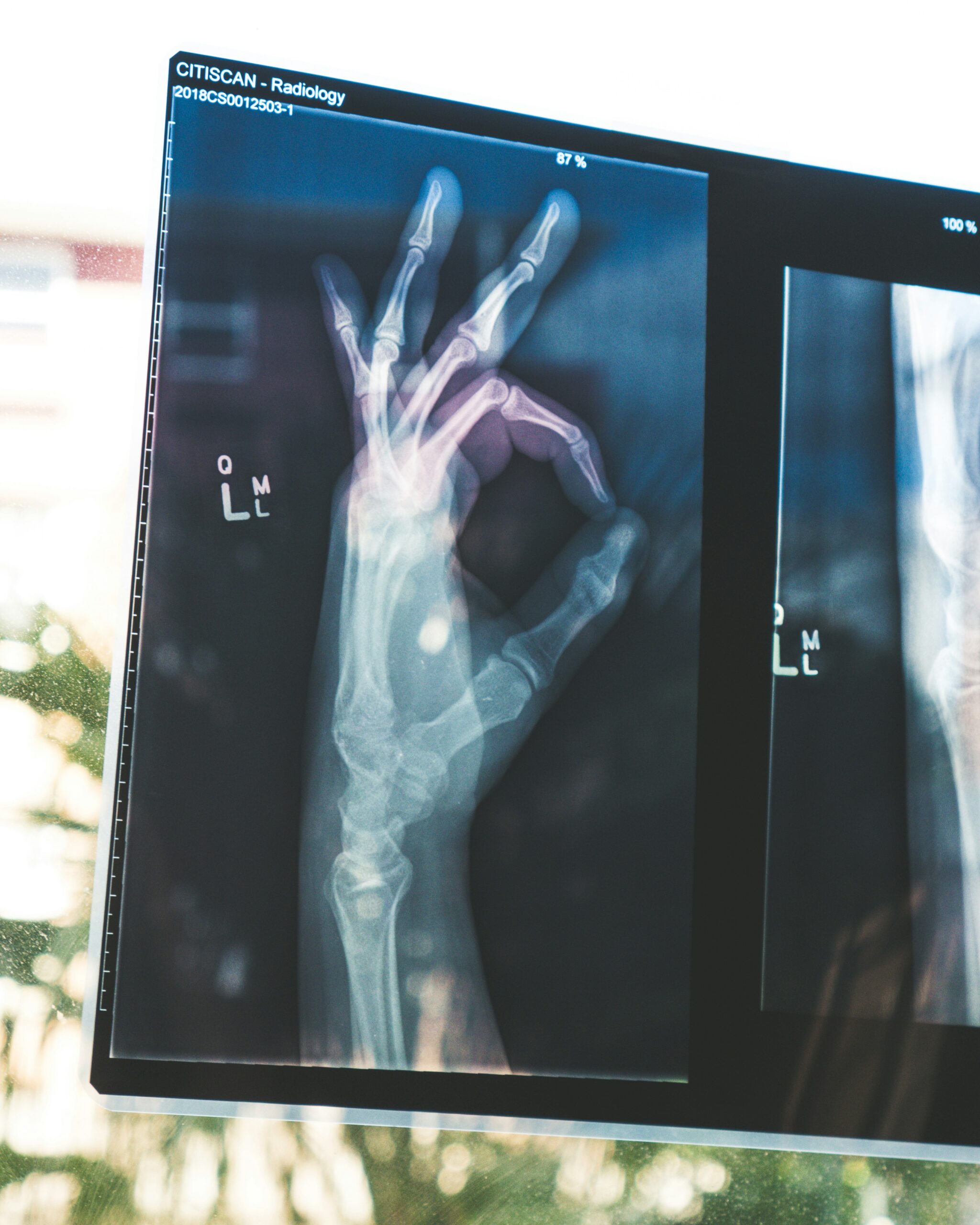Have you ever wondered what causes prostate problems? This article aims to shed some light on the factors that can contribute to issues with the prostate gland. From age and family history to lifestyle choices and certain medical conditions, there are several aspects that can play a role in prostate problems. By understanding these potential causes, you can take proactive steps in maintaining your prostate health and seeking appropriate medical care if needed.
Understanding the Prostate
The prostate is a gland located below the bladder and in front of the rectum in males. It is a crucial part of the male reproductive system and plays a significant role in reproductive functions. The prostate gland is responsible for producing semen, a fluid that nourishes and transports sperm during ejaculation. Understanding the anatomy and function of the prostate is essential in recognizing and addressing common prostate problems.
Anatomy of the Prostate
The prostate gland is roughly the size of a walnut, and its position makes it vulnerable to various medical conditions. It consists of several structures, including glandular and fibromuscular tissues. The glandular tissue produces seminal fluid, while the fibromuscular tissue helps in ejaculatory function. The prostate also surrounds the urethra, which is the tube responsible for carrying urine and semen out of the body. This close proximity to the urethra can lead to urinary symptoms when the prostate experiences issues.
Role of the Prostate in Male Reproduction
The prostate gland plays a vital role in male reproduction by producing and releasing seminal fluid. During ejaculation, the prostate contracts, squeezing the seminal fluid into the urethra. This fluid combines with sperm from the testicles, creating semen. The semen then travels through the urethra and exits the body through the penis. Without a properly functioning prostate, sperm would not be able to survive and successfully fertilize an egg. Therefore, any problems affecting the prostate can have a significant impact on male reproductive health.
Common Prostate Problems
As men age, they become increasingly susceptible to various prostate problems. These problems can range from benign to malignant, affecting a man's overall health and quality of life. The most common prostate problems include benign prostatic hyperplasia (BPH), prostate cancer, and prostatitis.
Benign Prostatic Hyperplasia (BPH)
Benign prostatic hyperplasia, commonly known as BPH, is a non-cancerous condition characterized by the enlargement of the prostate gland. It is a prevalent condition among older men and can cause urinary symptoms such as frequent urination, weak urine flow, and the inability to completely empty the bladder. BPH occurs due to hormonal imbalances and age-related changes, and genetic factors may also play a role in its development.
Prostate Cancer
Prostate cancer is the second most common cancer among men worldwide. It occurs when abnormal cells within the prostate gland grow uncontrollably and form tumors. Prostate cancer typically develops slowly and may not cause noticeable symptoms in its early stages. However, as the cancer progresses, symptoms such as difficulty urinating, blood in the urine or semen, and pain in the pelvis or lower back may occur. Genetic predisposition, age, race, ethnicity, and lifestyle factors, particularly diet, have been associated with an increased risk of developing prostate cancer.
Prostatitis
Prostatitis refers to the inflammation of the prostate gland, usually caused by a bacterial infection. It can also occur due to chemical irritation, nervous system disorders, or injury to the prostate area. Prostatitis can cause discomfort or pain in the lower abdomen, difficulty urinating, pain during ejaculation, and flu-like symptoms. The treatment of prostatitis depends on the underlying cause, and antibiotics are often prescribed to manage the bacterial infection.

Causes of Benign Prostatic Hyperplasia (BPH)
Several factors contribute to the development of benign prostatic hyperplasia, including hormonal imbalances, age-related changes, and genetic factors.
Hormonal Imbalance
A hormonal imbalance between testosterone and estrogen is thought to contribute to the development of BPH. As men age, testosterone levels decrease, leading to an increase in estrogen relative to testosterone. This hormonal shift can cause the prostate gland to grow and eventually result in BPH.
Age-related Changes
Advancing age is a significant risk factor for developing BPH. As men get older, cell growth within the prostate gland increases, leading to an enlargement of the gland. Age-related changes in hormone levels and the slowing down of cell turnover can contribute to the development of BPH.
Genetic Factors
Research suggests that genetics may play a role in BPH development. Certain genetic variations may make individuals more susceptible to the condition. Studies have identified specific genes associated with BPH and the growth of the prostate gland.
Causes of Prostate Cancer
Prostate cancer has multiple contributing factors, including genetic predisposition, age, race and ethnicity, and dietary and lifestyle habits.
Genetic Predisposition
Having a family history of prostate cancer increases the risk of developing the disease. Certain genetic mutations and inherited gene variants have been associated with an increased likelihood of prostate cancer. Therefore, individuals with a close relative, such as a father or brother, diagnosed with prostate cancer may have a higher chance of developing the disease themselves.
Age
Age is the most significant risk factor for prostate cancer. The incidence of prostate cancer increases significantly after the age of 50, with the majority of cases diagnosed in men over 65. As men age, the likelihood of abnormal cell growth within the prostate gland also increases, leading to an increased risk of developing prostate cancer.
Race and Ethnicity
Prostate cancer has been found to be more prevalent among certain racial and ethnic groups. African American men have the highest incidence rate of prostate cancer in the world, followed by Caribbean men of African descent. Conversely, Asian men have the lowest incidence rate. The reasons for these disparities are not yet fully understood and may involve genetic, environmental, and lifestyle factors.
Diet and Lifestyle Factors
Dietary and lifestyle habits can influence the development of prostate cancer. A diet high in red and processed meats, saturated fats, and low in fruits and vegetables may increase the risk. Conversely, a diet rich in fruits, vegetables, whole grains, and healthy fats, such as those found in fish and nuts, has been associated with a lower risk of prostate cancer. Regular exercise, maintaining a healthy weight, and avoiding tobacco and excessive alcohol consumption may also reduce the risk of developing prostate cancer.

Causes of Prostatitis
Prostatitis can be caused by a variety of factors, including bacterial infection, chemical irritation, nervous system disorders, and injury to the prostate area.
Bacterial Infection
The majority of cases of prostatitis are caused by bacterial infections. Bacteria from the urinary tract or rectum can enter the prostate gland, leading to inflammation. Common bacteria that can cause prostatitis include Escherichia coli (E. coli) and Klebsiella. Sexually transmitted infections, such as chlamydia and gonorrhea, can also result in prostatitis.
Chemical Irritation
Exposure to certain chemicals or irritants can irritate the prostate gland and lead to prostatitis. These irritants may include medications, urinary catheters, and substances used in procedures involving the urethra or bladder. Chemical irritation can cause inflammation and discomfort in the prostate region.
Nervous System Disorders
Prostatitis can be associated with disorders of the nervous system, such as neuropathy or nerve damage. Nervous system dysfunction can affect the bladder and its coordination with the prostate, leading to prostatitis-like symptoms. These cases of prostatitis are often categorized as nonbacterial prostatitis.
Injury to the Prostate Area
Injury to the prostate region, such as trauma from accidents or medical procedures, can cause inflammation and prostatitis. Surgical procedures involving the prostate or nearby structures, such as a transrectal ultrasound-guided prostate biopsy, can also lead to prostatitis-like symptoms.
Impact of Age on Prostate Health
Age has a significant impact on prostate health and the development of various prostate problems. Understanding the changes that occur with age can help in the prevention and management of these conditions.
Prostate Changes with Age
As men age, the prostate gland naturally undergoes changes. The gland typically enlarges due to cell growth, leading to benign prostatic hyperplasia (BPH). These age-related changes can affect urinary function and cause symptoms such as increased frequency, urgency, weak urine flow, and the sensation of incomplete bladder emptying.
Age-related Risk of BPH
The risk of developing BPH increases with age. As men grow older, the likelihood of experiencing symptoms related to BPH also increases. By the age of 60, more than half of men will have some degree of BPH, and by the age of 85, this number rises to approximately 90%.
Age-related Risk of Prostate Cancer
The risk of developing prostate cancer also rises with age. While prostate cancer can affect men of all ages, the incidence and prevalence significantly increase after the age of 50. The majority of prostate cancer cases are diagnosed in men over 65. Regular screening and early detection play a crucial role in managing the age-related risk of prostate cancer.

Impact of Lifestyle on Prostate Health
Lifestyle factors, including diet, exercise, and habits such as alcohol consumption and smoking, can influence prostate health and the risk of developing prostate problems.
Effect of Diet
Dietary choices can impact prostate health. Consumption of a diet rich in fruits, vegetables, whole grains, and lean protein sources has been associated with a lower risk of developing prostate problems, including BPH and prostate cancer. On the other hand, high intake of red and processed meats, saturated fats, and excessive calorie consumption may increase the risk.
Effect of Exercise
Regular physical activity and exercise can have a positive impact on prostate health. Engaging in moderate to vigorous exercise, such as brisk walking, running, or cycling, may help reduce the risk of developing prostate problems, including BPH and prostate cancer. Exercise also promotes overall health and well-being.
Impact of Alcohol and Smoking
Excessive alcohol consumption and smoking have been linked to an increased risk of developing prostate problems, including BPH and prostate cancer. Alcohol should be consumed in moderation, and smoking cessation is highly recommended to maintain optimal prostate health.
Genetic Factors and Prostate Problems
Genetics can play a significant role in the development of prostate problems, including prostate cancer, BPH, and prostatitis.
Genes Associated with Prostate Cancer
Certain genes have been identified to have a strong association with prostate cancer. Mutations or variants in these genes can increase the risk of developing the disease. Genetic testing and understanding one's genetic predisposition can aid in early detection and personalized treatment options.
Hereditary BPH
Although genetic factors contribute to the development of BPH, hereditary BPH is relatively rare. In some families, specific genetic variations may be passed down, making individuals more susceptible to developing BPH. Further research is needed to fully understand the genetic components of BPH.
Genetic Risk Factors for Prostatitis
Genetic factors are also thought to play a role in prostatitis. Certain genetic variations may influence an individual's susceptibility to bacterial infections or contribute to inflammation in the prostate area. However, the exact genetic risk factors for prostatitis are still being studied.
Hormonal Factors and Prostate Problems
Hormonal imbalances and changes can have an impact on prostate health and contribute to the development of various prostate problems.
Role of Testosterone
Testosterone is the primary male sex hormone responsible for the development and maintenance of male reproductive tissues, including the prostate gland. Fluctuations in testosterone levels, particularly age-related decline, can influence prostate health and contribute to the development of problems such as BPH and prostate cancer.
Role of Estrogen
Contrary to popular belief, estrogen also plays a role in prostate health. Estrogen is naturally present in men, but its levels are relatively low compared to women. However, as men age and testosterone levels decrease, the ratio of estrogen to testosterone increases. This hormonal shift can contribute to prostate gland growth and may influence the development of prostate problems.
Hormone Therapy and Prostate Health
Hormone therapy, which involves altering hormone levels, is sometimes used in the treatment of prostate problems such as prostate cancer. Medications or interventions may be employed to reduce testosterone levels or block its effects on the prostate gland. Hormone therapy aims to slow down the growth of prostate cancer cells or shrink the size of the prostate gland in cases of BPH.
Preventing Prostate Problems
While prostate problems are common among men, there are steps that can be taken to decrease the risk and manage these conditions effectively.
Regular Check-ups
Regular visits to a healthcare provider are crucial for maintaining good prostate health. Routine check-ups can help detect and address any early warning signs or symptoms of prostate problems. Physicians may perform a prostate-specific antigen (PSA) blood test, a digital rectal examination (DRE), or other diagnostic procedures to assess prostate health.
Healthy Lifestyle Choices
Adopting a healthy lifestyle can have a significant impact on prostate health. This includes consuming a nutritious diet rich in fruits, vegetables, whole grains, and lean proteins, while minimizing the consumption of red and processed meats, saturated fats, and excessive calories. Regular physical activity, maintaining a healthy weight, and proper hydration are also important.
Management of Underlying Health Conditions
Health conditions such as diabetes, obesity, and cardiovascular disease can influence prostate health. Managing these conditions through appropriate medical treatment, diet, exercise, and lifestyle modifications is vital for overall well-being and may help reduce the risk of developing prostate problems.
In conclusion, understanding the anatomy of the prostate and its role in male reproduction is essential in recognizing and managing common prostate problems. Benign prostatic hyperplasia, prostate cancer, and prostatitis are the most prevalent prostate problems that men may encounter. Various factors, including age, genetic predisposition, hormonal imbalances, lifestyle choices, and underlying health conditions, contribute to the development of these problems. By adopting a healthy lifestyle, maintaining regular check-ups, and managing underlying health conditions, men can take proactive steps towards preventing or effectively managing prostate problems.

